Local
LA Pride embraces call for protest march
Inspired by Women’s March, LA Pride organizers embrace protest movement
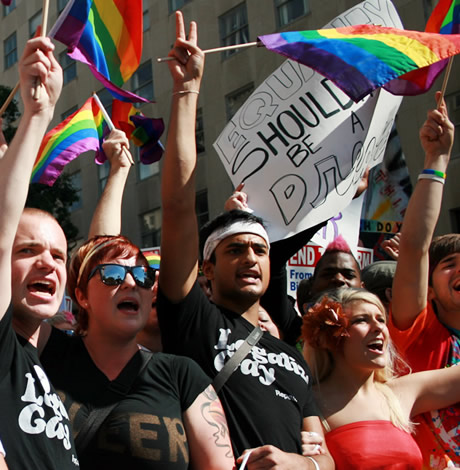
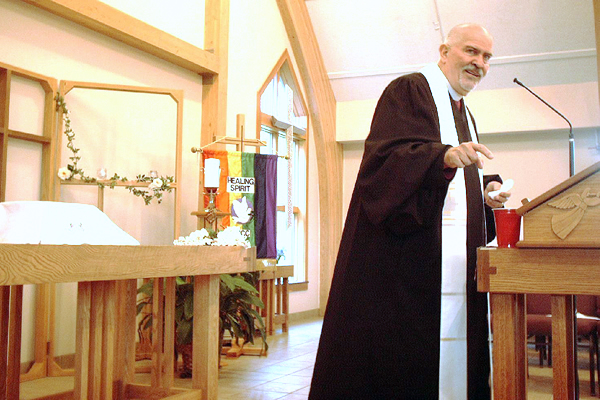
Rev. Troy Perry was one of the founders of Christopher Street West. (Photo by Jonathunder; courtesy Wikimedia Commons)
Resistance is the stuff LGBT Pride was once made of.
Los Angeles in the late 1960s, like much of America, was a hotbed of resistance of every kind: the women’s movement, the hippie movement, the antiwar movement and, yes, even a nascent movement for LGBT rights, all combined here to fuel the winds of change. The LGBT community in Los Angeles, as in New York and around the country, lived under constant threat of official violence and the oppression of pervasive hostility.
In 1966 Los Angeles, affection between men was officially condemned as a mental illness and viewed as a moral disorder. Sexual relations between people of the same sex — even hand holding — was a crime. Careers were destroyed by whisper or innuendo and extortion was rampant. There were precious few safe social spaces for LGBT people other than a dozen or so nightclubs in close proximity to one another near Silver Lake — Black Cat, Ram’s Head and Stage Door — and a couple, like The Patch near Long Beach.
And so when routine police raids on these establishments escalated and turned violent, the community was deeply traumatized. Finally, a breaking point came on New Year’s Eve 1967 when a celebration at Black Cat turned into a bloodbath; at five minutes past midnight, plainclothes police officers began tackling patrons, swinging billy clubs and pool sticks, dragging people into the streets, pulling bartenders facedown over broken glass across the bar, chasing patrons down the streets, breaking bones and doing severe bodily injury to some, arresting 16 people who were charged with lewd conduct for simply kissing, according to witnesses of the time and published accounts.
A community that had long hidden in the shadows suddenly found itself seeking intersectional allies. Police violence against civilians was attracting more attention than ever and activist groups, like Personal Rights in Defense and Education (PRIDE) distributed fliers that read, “PRIDE DEMONSTRATION: join Negroes, Mexicans, hippies” and demonstrate against “the Establishment war on minorities.” The Southern California Council on Religion and the Homophile urged action by activating a phone-tree with the message that “Homosexuals, who have always been dependably meek, are fighting back.”
An unprecedented number of people turned out — one of the first mass gatherings in the United States protesting police harassment of LGBT people — protesting at the corner of Sunset and Hyperion.
Until recently, the action, groundbreaking though it was, has rarely been hailed as such. It has been almost buried in LA’s psyche. Even Troy Perry, one of the founders of Christopher Street West, says he “never viewed the Black Cat as a demonstration for LGBTQ rights but as an action against police brutality at that time in LA.”
Two and a half years later, in June 1969, a police raid on New York’s Stonewall Inn captured the attention of the world, however.
Six powerful days of resistance in 1969 between young gay, lesbian, and transgender people and the New York Police Department continue to define who we are as a people, a movement and a community. After an intense escalation of brutal police raids on gay bars in New York City, patrons of the Stonewall Inn, a Christopher Street bar in Manhattan’s West Village, fought back and won.
Though police turned fire hoses on the crowd, it swelled to thousands; chorus lines of drag queens and lesbian and gay youth overtook barricades, taunting police with campy chants and performing a Rockette-like show for the jaw-dropped police. “Occupy — take over, take over” they shouted. “Fag power!” “Liberate the bar! We’re the pink panthers!” They pulled cobblestones from the streets, smashed windows, threw bottles, even uprooting parking meters and cornering terrified policemen while singing a campy version of “We Shall Overcome.”
While news of the riots spread quickly around the world, Angelenos Rev. Troy Perry, Rev. Bob Humphries and Morris Kight, formed Christopher Street West (CSW) to honor the uprising in New York and to tap into a burgeoning sense of “gay power” by launching the world’s first Gay Pride Parade.
On June 28, 1970, thousands of jubilant people celebrated and danced their way west along Hollywood Boulevard, some chanting “two, four, six, eight, gay is just as good as straight” and hoisting placards calling for equality and justice.
“At the time we had no idea what we were creating, we just wanted to acknowledge a courageous group that stood up to being bullied by police. It was a microcosm of what was taking place throughout the country and we thought, what better way to make noise, get attention and excite our community than by dressing up and putting on a parade,” said Perry.
Over the years the event evolved along with the community.
It moved to West Hollywood and became a fee-based, three-day festival to help pay the growing expense of the event. It was never without controversy, but fast-forward to 2016 and both the festival and the parade had nearly collapsed in the heat of withering criticism over the direction of the event and whether history or LGBT identity even matters.
From its founding in 1970 to 2016, the parade reflected the concerns of a community fighting for basic dignity, political rights, against violence and for government recognition of a health crisis that killed hundreds of thousands of gay men. In recent years, as the community enjoyed civil rights victories and gained social, cultural and political power, the Parade’s identity began to blur.
Last year, when CSW attempted to rebrand the three-day festival into a Music Festival, critics derided the group for attempting to turn LA Pride into “Gay Coachella.” CSW, they said, was hell-bent on ignoring the event’s legacy and on edging out more senior members of the community. CSW President Chris Classen, perhaps unintentionally, reinforced that notion while addressing the controversy to the West Hollywood City Council, saying that by “adding the word ‘music’ to the title of L.A. Pride is a subtle welcome to a younger generation who does not inherently understand the historical context of the event.”
Indeed, his plan, by rearranging or removing sacred elements of the festival, seemed to minimize the visibility of lesbians, transgender, Latino and leather community members and paid no homage to seniors or to history. Even country-western people felt they’d been given the boot in favor of a post-gay Music Festival.
Groups formed to protest CSW and critics blasted the organization at the group’s open board meetings and City Council meetings. Ivy Bottini, a 90-year-old lesbian resident of West Hollywood demanded change: “I consider the board a lame duck board…It doesn’t feel like CSW understands what Pride is.”
CSW corrected most of its mistakes and issued a mea culpa. Last May, CSW issued a statement saying it had “made a few missteps along the way that have left valued members of our community feeling left out or underappreciated. This was never our intention. We’ve heard your concerns and objections and we sincerely apologize.” It seemed to work.
But events conspired to remind everyone about the historical context of the event — a response to violent oppression — that gave rise to Christopher Street West’s existence.
Mourning for Orlando
Los Angeles, like everyone in America, was stunned to wake up on the morning of June 12, 2016, to the news that a madman had opened fire on the dance floor of a gay nightclub in Orlando, killing 49 people and wounding dozens more. That morning, Santa Monica Police Department arrested 20-year-old James Wessley Howell, an Indiana man, who was found with an arsenal of assault rifles, ammunition and explosives in his car; he told police he ‘wanted to harm’ people at the Los Angeles Pride festival.
A pall was cast over the annual LA Pride Parade but in a defiant move, Christopher Street West chose to continue with the Parade and it quickly became a march honoring of the victims in Orlando.
But questions about CSW just wouldn’t go away.
In late 2016, it was revealed the organization had lost several hundred thousand dollars, renewing outrage and provoking allegations of mismanagement. West Hollywood Mayor Lauren Meister, concerned about city involvement with potentially troubled non-profit organizations, required financial disclosure from subsidized organizers. LA Pride has for years been partially subsidized by West Hollywood because it is estimated to generate more than $5,000,000 in tax revenues.
Complicating matters for CSW, in January 2017, several senior board members resigned and complained publicly that the top-down management style of the board resulted in making their service useless. Chief among their complaints was the requirement of non-disclosure agreements that prevented board members from discussing organizational matters outside the board. The board members who resigned were representative of the issues that sparked the most concern in 2016; a prominent transgender woman, a senior man, a documentarian of LGBT history, a legacy CSW president and a Latino man and chairman of LA Leather Pride Week.
The resignations resurrected community frustrations about CSW’s direction yet the organization appeared to be singularly focused on the impact the closure of West Hollywood Park had on its Music Festival plans. But the election of Donald Trump and his anti-LGBT vice president, along with the installation of an almost uniformly anti-LGBT cabinet was top of mind for the community at large.
#resistmarch

LA-based philanthropist, activist and entrepreneur Brian Pendleton called for a protest march.
Enter LA-based philanthropist, activist and entrepreneur Brian Pendleton, inspired by the women’s march (which attracted several hundred thousand people to downtown LA) seized on what he saw as pent-up demand for action that he, perhaps incidentally, felt could give LA Pride revitalized mission. He posted a frustrated comment on Facebook, “before my first cup of coffee,” declaring that the parade should be turned into a protest march.
A Facebook page and other social media using #resistmarch was created along with a website and the idea went viral. More than 33,000 people have joined.
Pendleton found himself on the board of CSW.
“There was a hesitation to have me join the board,” he said. “CSW has policies and procedures about how to add board members and in order for me to join, I understand, the board had to waive those procedures. But once the groundswell of grassroots support became so strong it was clear that it made the most sense for CSW to add me as an exception.”
He refused to sign the controversial non-disclosure agreement.
The idea has been adopted by Christopher Street West, sending the parade off into a whole new direction that more closely resembles the intentions of its founders.
The march will even begin at the 1970 founding location at Hollywood Boulevard and Highland to La Brea before continuing onto Santa Monica Boulevard and into West Hollywood.
Over the past 40 years, local merchants have grown to rely on the event’s ability to attract more than 100,000 people and generate millions of dollars in income, according to studies by the City of West Hollywood. Organizers are hoping to at least double the participation this year.
Significantly, the Resist March idea requires outreach to allied communities and that work is in full swing. Among the growing number of signees: Equality California, Los Angeles LGBT Center, APLA Health, Human Rights Campaign, The Trevor Project, Family Equality Council, Asian Pacific AIDS Intervention Team, City of West Hollywood, Women Against Gun Violence, IBEW Local 11, UNITE HERE! Local 11, CA NOW, National Council of Jewish Women NARAL Pro-Choice California, Hollywood N.O.W., California Women’s Law Center, Victory Institute, The Next Family, LASC, Project Angel Food, Tegan and Sara Foundation, Trans Can Work, West Hollywood City Council members Heilman, Duran and Horvath, Christopher Street West, Los Angeles County Board of Supervisors, Los Angeles County Office of the Assessor, Los Angeles City Attorney, and Gina Belafonte.
Pendleton told City Watch, “This year, because of the political winds and forces, we’re sort of wrapping the iconic rainbow flag of LGBTQ around women fighting for reproductive rights, the dreamers who want to stay in this country and recent immigrants who want to come here, anyone who feels impacted by the forces against human rights.
“We’ve been fighting for our rights for decades now but the last eight years, we’ve had wind in our sails and seen tremendous progress. Not wanting to have any of our rights rolled back, we stand up with our trans brothers and sisters whose fates are being decided by state governments. In South Dakota, LGBTQ people can no longer adopt. We want our rights restored.”
The idea has spread around the country.
In New York City, Matt Foreman, the former executive director of the National Gay & Lesbian Task Force, has also been advocating for a Resistance March there. On Facebook he wrote: “WTF Heritage of Pride?! Why do people have to plead with you for the Resistance to be front and center in this year’s pride march?! YOU should be taking the lead and embracing the legacy of Stonewall. Aren’t you humiliated that LA Pride is ahead of HOP on this? Why court controversy and retreat into the dank well of “process”? Come on folks, you’re better than this!”
Meanwhile, in Washington, D.C., a National March is taking shape, planned for Sunday, June 11, that was instigated by a New York activist who also took to social media to call for a march.
David Bruinooge, 42, a Brooklyn, N.Y., resident, said he was inspired to create a Facebook page announcing the march on Jan. 21 while he was watching the Women’s March on Washington at home on television.
“I was watching the events unfold on TV and I was very proud and inspired by all the women, the strong women in our country who were kind of taking this to the street and getting their voices heard,” he told the Blade. “And in the back of my mind as an openly gay man I thought the gay community should be doing something like this to follow up on the momentum,” he said.
He said he intentionally chose June 11 for the march because it’s the same day that D.C.’s Capital Pride Festival is scheduled to be held on Pennsylvania Avenue, N.W. near the U.S. Capitol. Bruinooge said his thought was the march would start in the morning and end at the site of the Pride festival.
Rev. Perry said in a statement to the Los Angeles Blade, “As the co-founder of Christopher Street West, I am thrilled to see them change the 2017 pride parade to a human rights march. For me it’s always been about humanizing our community, standing up for those who need us most, and giving a voice to those who are sometimes invisible. Marching for human rights fits squarely within the principles of CSW’s founding. I’ll see you all on June 11th!”
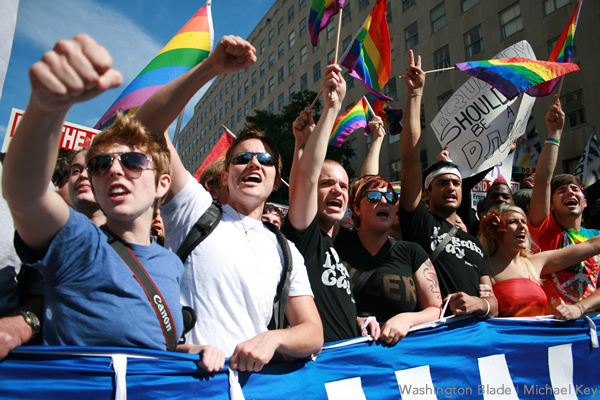
The last LGBT march on Washington was the National Equality March on Oct. 11, 2009. (Washington Blade file photo by Michael Key)
Lou Chibbaro Jr. contributed to this report.
Arts & Entertainment
2025 Best of LGBTQ LA Readers’ Choice Award Nominations
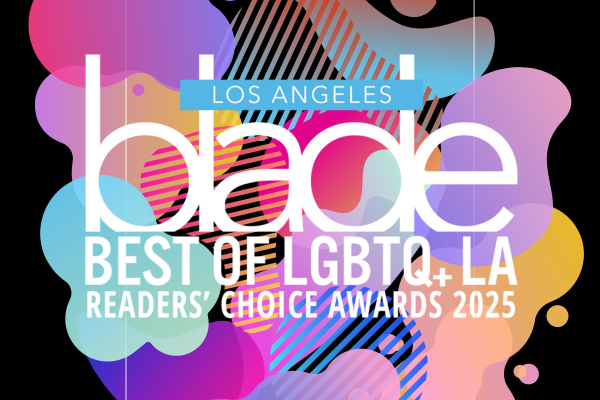
It’s time to celebrate the vibrant and diverse LGBTQ+ community of Los Angeles! Nominations for the Best of LGBTQ LA Awards are open from March 31st to April 6th, giving you the chance to highlight your favorite local legends, hotspots, performers, and changemakers. Then, from April 14th to April 27th, cast your vote for the finalists and help decide who truly represents the best of LGBTQ LA.
Use the form below or click the link HERE to nominate!
Local
‘Think of those who have not been seen,’ Cynthia Erivo’s powerful message at GLAAD Awards
Erivo and Doechii delivered powerful acceptance speeches at the 36th GLAAD Media Awards

GLAAD celebrated its 40th anniversary with a star-studded gala in Beverly Hills, honoring achievements in LGBTQ+ media and entertainment, while pushing back at efforts nationwide to turn back civil rights protections, restrict and erase transgender identities.
Doechii accepted a GLAAD Media Award for outstanding music artist, Harper Steele won for outstanding documentary for Will & Harper and Nava Mau was honored with the outstanding series – limited anthology award for Baby Reindeer.
Those in attendance rose for a long and enthusiastic standing ovation as the prestigious Stephen F. Kolzak Award was presented to Cynthia Erivo.
“It isn’t easy. None of it is, waking up and choosing to be yourself, proclaiming a space belongs to you when you don’t feel welcomed,” said Erivo.
The 38-year-old queer Oscar nominee and Emmy, Tony and Grammy winner delivered a moving acceptance speech, in which she thanked GLAAD but also called on the audience to do more to help those in the community who have not yet come out. Video of her remarks has gone viral on Instagram.
“Here in this room, we have all been the recipients of the gift that is the opportunity to be more. I doubt that it has come easy to any of us, but more, for some, the road has not been one paved with yellow bricks, but instead paved with bumps and potholes. Whichever road you have traveled, how beautiful it is that you’ve had a road to travel on at all. There are the invisible ones who have had no road at all. For those who have not
yet even begun to find the road, be encouraged and be patient with yourself, it will show itself,” Erivo said. Then she paused from reading the speech that was in the teleprompter, and ad libbed a poetic, closing message.
“We use the phrase ‘out and proud,’ and though you might not have the strength or capacity to do that now, know that I am proud of your quiet and solitary want to be just that,” she said, and then addressed the community ahead of Transgender Day of Visibility. “We are all visible. We can be seen. We see each other. I see you, you see me. But think of those who have not been seen, think of those who sit in the dark and wait their turn, hoping and waiting for a light to light their path. I ask every single one of you in this room, with the spaces that you’re in, and the lights that you hold, to point it in the direction of someone who just needs a little guidance.”
Broadway legend Patti LuPone offered guidance from queer icons, past and present, when she took the stage to recite inspiring quotes that brought the house down.
“I can no longer accept the things I cannot change. I am changing the things I cannot accept,” LuPone quoted lesbian, feminist, activist Angela Davis. “Coming out is the most political thing you can do,” she said, quoting Harvey Milk.
Then LuPone cited some of the stars of Drag Race, including Valentina, Kennedy Davenport, Alyssa Edwards, Trixie Mattel, Plane Jane, and Latrice Royale. But it was the words of OG Drag Race alumna Bianca Del Rio that got the crowd on its feet: “Not today, Satan. Not today!”
“Right now, LGBTQ+ rights are under attack, but what they take from us, they take from you too,” said Brian Michael Smith, upon winning the award for outstanding drama series for 911: Lone Star. “These aren’t isolated rollbacks; they’re attacks on all of our civil rights. This kind of representation is more than visibility, it’s resistance.”
When Doechii accepted the trophy for outstanding music artist at the ceremony, the “Denial Is a River” rapper commented on this politically charged moment for the LGBTQ community, as she praised GLAAD for its principles of “acceptance, inclusiveness and empowerment.”
“Those are the same things I strongly believe in and advocate for and that continue to propel me forward, especially now that hard-won cultural change and rights for transgender people and the LGBTQ community have been threatened,” said Doechii. “And I am disgusted. Disgusted. But I want to say that we are here and we are not going anywhere.”
“These kinds of events help me to feel support, to feel like we’re a team working together to make ourselves feel more seen, make others feel more seen, and there’s so much still to celebrate,” said singer songwriter David Archuleta, the American Idol alum who made headlines in 2021 when he came out and quit the Mormon Church. On the red carpet before the gala, he shared with the Los Angeles Blade his advice to fans who want to find joy amid the gloom: “I love to go dance. Dance is so therapeutic. It’s a place where you can just shake it off, feel hot, go out, and that’s a therapeutic way.”
“This is where I find joy,” Michaela Jaé Rodriguez told the Blade. “But the best times where I find even more joy is learning what state we’re in. Learning how I can fire myself, put a fire behind me, and stay as vigilant as possible and be in the forefront and never disappear. And I want to encourage that to a lot of my young individuals out there. Don’t disappear. Stand out, be proud, and don’t be scared. I’m not scared!”
“It feels amazing, being surrounded by basically my own people is always like a big warm hug, so I love it,” Harper Steele told the Blade.
The writer, who took home a GLAAD trophy for her award-winning documentary with her friend and fellow SNL alum Will Ferrell, noted that despite the joy of the evening, she was “very sad” about political moves targeting the transgender community in Washington, D.C. as well where she grew up in Iowa.
“My own home state, who gave me trans protections and rights, just took them away,” Steele told the Blade. “We’re the first group that’s ever had those rights taken away from us, so we’re in a weird time. I’m going to keep doing the best I can to convince people that they’re wrong. Not only are they wrong, but they’re being stupid.”
The Washington Blade was nominated for its coverage of the 2024 Summer Olympics Games, ”Paris Olympics: More queer athletes, more medals, more Pride, less Grindr,” in the category of outstanding print article. The winner was “‘Changing The Narrative’: Advocates Fight HIV Stigma in Dallas’ Latino Community” by Abraham Nudelstejer of The Dallas Morning News. The Advocate won for outstanding magazine overall coverage, and Jo Yurcaba of NBC Out won for “Friends Remember Nex Benedict, Oklahoma Student Who Died After School Fight, as ‘Fiery Kid.’”
The Blade also spoke to GLAAD President and CEO Sarah Kate Ellis on the red carpet.
Ellis and the organization survived a difficult challenge in 2024 when Ellis herself came under fire from The New York Times for what it called “lavish” spending. It should be noted that in a one-on-one conversation with Variety in October, Ellis pointed out that The Times report omitted mention of GLAAD’s multi-year campaign that called attention to the newspaper’s unbalanced coverage of issues related to transgender Americans and gender-affirming care, and that any spending issues raised by the report — seen by many as a hit piece in retaliation for GLAAD’s campaign — had already been addressed “two years ago.”
Ellis told the Blade she remains focused on GLAAD’s mission to advance acceptance of the LGBTQ community in media.
“I think tonight for me is about getting everybody together to talk about our stories, how important they are, and make sure that we are plastering the airwaves with our stories. And I think it’s about moving forward and having a plan. We have a plan at GLAAD. We understand what’s happened to this media ecosystem and we’re forging forward.”
Ellis spoke passionately about the challenge the nonprofit faces in 2025 and beyond.
“I think the media ecosystem has changed so dramatically and tectonically in a short period of time, “ she said. “We’re seeing that right-wing media gets about 100 million people a week. Progressive media reaches 30 million people a week. So, we have a 70 million person gap, and that gap is why we’re losing presidential campaigns, why we’re losing the narrative, why our community is under siege. We have to close that gap.”
Read the full list of nominees and winners of this year’s GLAAD Media Awards here.
California
Equality California to release 2024 Legislative Scorecard and rally at State Capitol
The rally will unite LGBTQ+ community members and political leaders
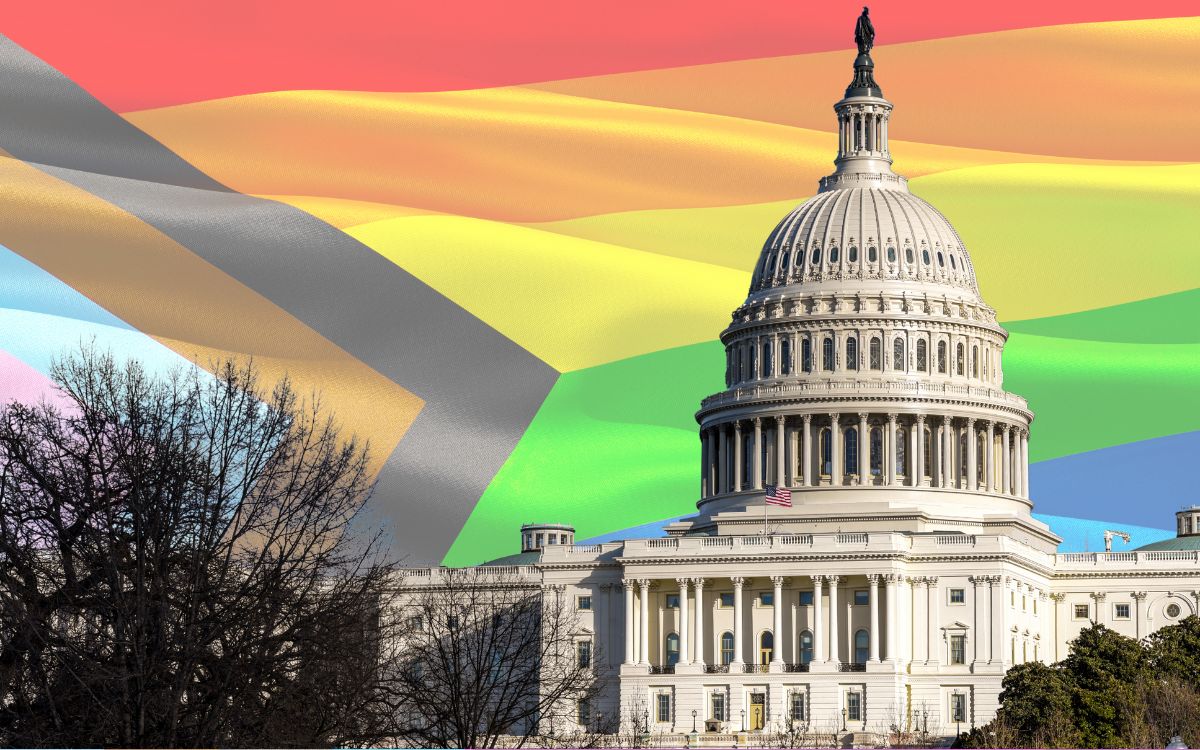
Equality California will hold a rally at the State Capitol’s West Steps in response to rising anti-LGBTQ+ political attacks on Wednesday, March 26 at 11:00 AM PT.
This rally will also serve as an opportunity to discuss the release of the 2024 Legislative Scorecard, which is a report of politicians and sponsored legislation that further and cement the protections of LGBTQ+ rights. The scorecard also analyzes voting methods and results, gathering an overall score that reflects legislators’ votes on EQCA-sponsored legislation.
Equality California is the nation’s largest statewide civil rights organization working towards bringing justice to LGBTQ+ issues by rallying against legislative issues that attack LGBTQ+ rights.
This call to action will serve as part of the organization’s annual LGBTQ+ Advocacy Day, held each year to bring together constituents with lawmakers in support of pro-LGBTQ+ legislation.
EQCA has a line-up of featured political speakers to include Assembly Democratic Caucus Chair Rick Chavez Zbur, Legislative LGBTQ Caucus Chair and Assemblymember Chris Ward, Legislative LGBTQ Caucus Vice Chair and Senator Caroline Menjivar, among others.
This event is meant to bring attention to the rise in political attacks, unite in community and mobilize efforts toward preserving LGBTQ+ rights for the state of California and beyond.
Breaking News
Family of Linda Becerra Moran, trans woman killed by LAPD after calling 911, files lawsuit
Moran was pronounced dead after three weeks on life-support

On Feb. 7, Linda Becerra Moran contacted the Los Angeles Police Department in a phone call where she reported that she was being held against her will in a San Fernando Motel.
At around 9:40AM, Moran called the Foothill Division of the LAPD, and was recorded stating that she was not only being held at the motel against her will, but that she was being forced to bring men into her motel room. In the audio call recording, she is heard crying as she answers the questions regarding her safety.
When the officers found her in the hotel room they stated that she didn’t remember how she got there, while speaking in Spanish to the officers.
The statement released regarding the officer-involved shooting says that ‘when officers arrived, they entered the motel room and met with Moran. During their investigation, Moran became agitated, armed herself with a knife and held it to her neck.’
The officers responded by drawing their guns, further agitating her. The attorney representing the family of Moran says the released video proves that the shooting was unlawful and unjust.
Now, the TransLatin@ Coalition is looking for justice for Moran and her family, especially considering that she was someone who received services directly from them. They hosted the first vigil for her on Friday, March 14, in front of the LAPD headquarters.
“Linda Becerra Moran, a trans immigrant who received services from our organization, was brutally shot and murdered by the Los Angeles Police Department. We held a vigil and we invited the community to join us in solidarity as we demand justice and honor Linda’s life,” said the TransLatin@ Coalition in a statement.
The police officer who shot and killed Moran was Jacob Sanchez, 24, who was hired in 2021.
Moran was pronounced dead after three weeks on life support in late February.
Somos Familia Valle, is hosting a poster-making event today from 2PM to 8PM where they will be preparing for a call to action. The call to action is scheduled for Saturday, March 22 at the Foothill Division Police Department, at 1PM. The organization posted a list of demands, along with their statement on Moran’s death.
“At a time where our trans siblings are being attacked politically and socially, now more than ever is the time for us to be loud and seek accountability,” reads the statement. “The murder of Linda Becerra Moran by the Los Angeles Foothill Division Police Department was unwarranted and speaks to the disregard for trans lives, but also the lack of de-escalation tactics.”
Local
LA’s Queer professionals will gather to host free community event
Open Space Therapy Collective Hosts Community Building Experience with Queerly Connected

The Open Space Therapy Collective will be hosting a community building experience featuring dozens of LA-based professionals from across different industries. This community-building event was planned in response to the sweeping political attacks against the queer, trans and BIPOC communities. The event hosted by Queerly Connected is fittingly titled We Got Us, and it will be free and open to the public.
Wellness providers will be there to provide art therapy, movement therapy, grief counseling, sound baths, yoga and other creative and healing arts.
“As political pressure on our communities intensifies, it’s increasingly more important for us to come together and create a space where our healing and joy can intersect,” said Renea Johnson, founder of Open Space Therapy Collective and host of Queerly Connected. “Historically, in times like these, it’s important for us to expand our community and nurture collaboration. That’s why I’m so grateful for everyone who steps out to build community with us at Queerly Connected.
Another aim of the event is to learn and experience the modalities of the queer, trans and BIPOC communities. Attendees can deepen their understanding and learn more about a queer-informed approach.
Some of the experiential workshops and other offerings will include grief counseling by Studio DDLA, sound baths by TSage and DG Sound Healing, full-spectrum support from The Gender Doula, artist collaborations by Secret Spot, nails by Little Brother Nails and more.
The event will take place at Studio DDLA. This event is meant to encourage people to come as they are, with a rolling entry from 4PM until 7PM on Sunday, March 16.
To learn more about the event or the collaborators, visit their website.
Local
WeHo Gives Back program launched to support small businesses
This initiative will raise funds for local businesses impacted by the recent wild fires
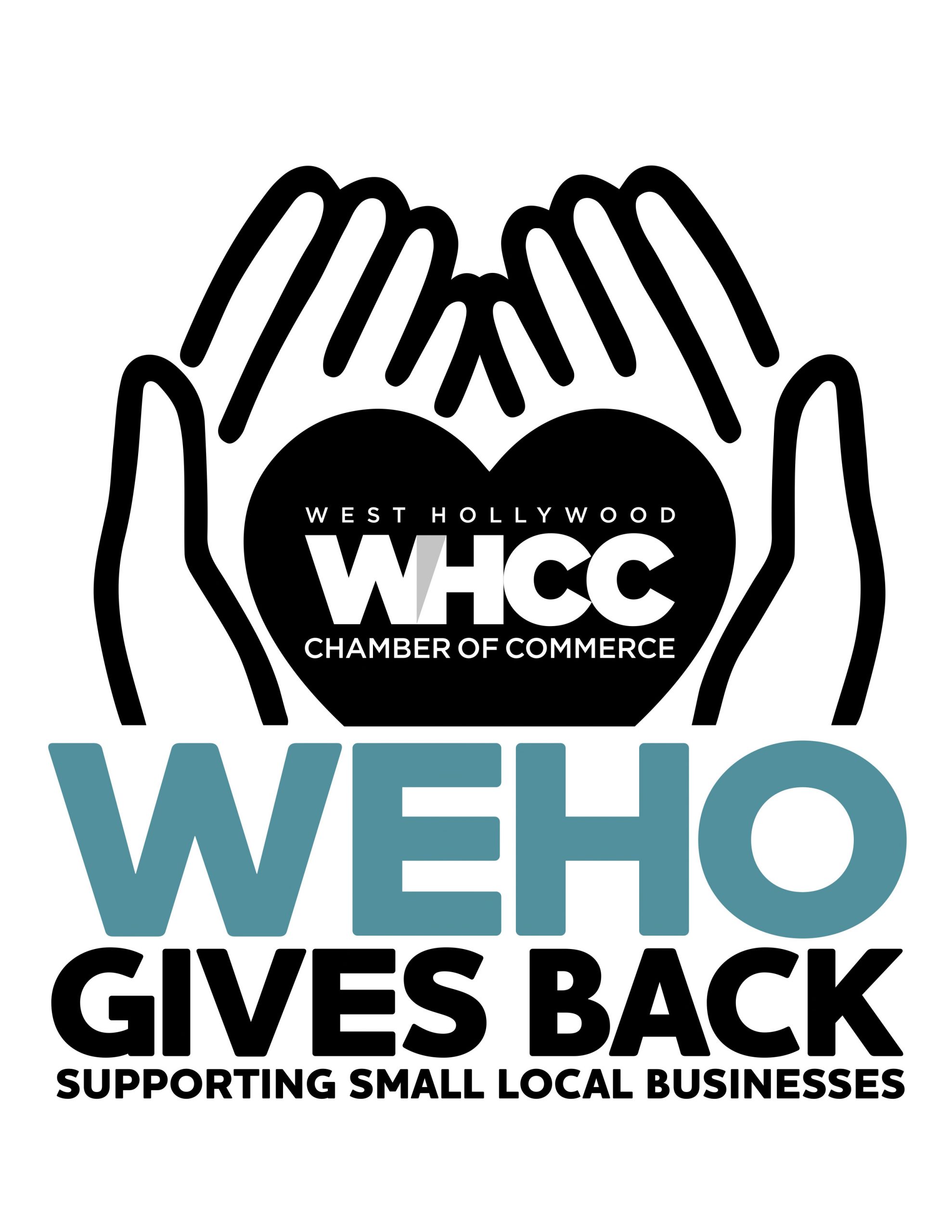
The West Hollywood Chamber of Commerce (WHCC) announced the launch of WeHo Gives Back, a new initiative that is committed to supporting small businesses in West Hollywood that have been impacted by the Los Angeles fires.
“The small businesses of West Hollywood are resilient, but they need our community’s support
now more than ever,” said Genevieve Morrill, WHCC president and CEO. “WeHo Gives Back is
our way of ensuring these establishments receive the support they need to recover and thrive.”
West Hollywood is home to a diverse number of locally owned businesses. From the nightlife and restaurant industries to service providers like dry cleaners and salons, there’s a business for every one of the community’s needs. According to the WeHo Chamber of Commerce, businesses have been experiencing revenue declines between 25 percent to 50 percent with retail, hotels, restaurants, and bars being hit the hardest. In some cases, businesses have reported over 70 percent in loss of revenue, leading to a reduction in staff and operating hours.
About 26 percent of West Hollywood’s workforce is made up of hospitality workers, primarily employed by small businesses. These businesses, including the hotel industry, contribute to an estimated 70 percent of the city’s revenue. Tax revenue is used to support social services, community safety, and infrastructure improvements.
WHCC is calling on the community to support through WeHo Gives Back with a goal to restore the loss in foot traffic and to raise much needed funds. The public is encouraged to venture out to West Hollywood to shop, dine, and play.
The initiative kicked off on March 1st and West Hollywood go-ers will start to see QR codes on signs, napkins and websites in order to contribute to the recovery fund.
For more information about WeHo Gives Back or where to donate, visit wehochamber.com/wehogivesback.
California
HRC criticizes Gavin Newsom for saying trans athletes should not be able to compete
Calif. governor made comments on Charlie Kirk’s podcast

The Human Rights Campaign issued a statement Thursday criticizing Democratic California Gov. Gavin Newsom, who said this week that allowing transgender athletes to compete in women’s sports was “deeply unfair.”
HRC President Kelley Robinson said, “When LGBTQ+ lives are under attack, real leaders don’t hedge — they fight. Across this country, extremists are stripping away rights, banning books, and targeting trans kids just for being who they are. This is not the time for political calculations or playing it safe — it’s time to be bold, to stand up, and to say unequivocally: We will protect LGBTQ+ people with everything we’ve got.”
She continued, “The fight for equality has never been easy, but history doesn’t remember those who waver — it remembers those who refuse to back down. Our message to Gov. Newsom and all leaders across the country is simple: The path to 2028 isn’t paved with the betrayal of vulnerable communities — it’s built on the courage to stand up for what’s right and do the hard work to actually help the American people.”
A longtime ally to the LGBTQ+ community, Newsom was one of the first public officials to officiate same-sex marriages in the early 2000s, which at the time drew criticism from leaders in his own party.
His remarks on trans athletes came during an interview with right-wing pundit and provocateur Charlie Kirk, on the inaugural episode of the governor’s podcast, “This Is Gavin Newsom.”
The move signals a possible shift in how Democratic leaders are positioning themselves on issues concerning trans rights, especially provided the speculation about Newsom’s plans to run for president in 2028.
Breaking News
Former fire chief Kristin Crowley loses fight for her position
Former fire chief loses appeal to be reinstated after being fired by Mayor Karen Bass
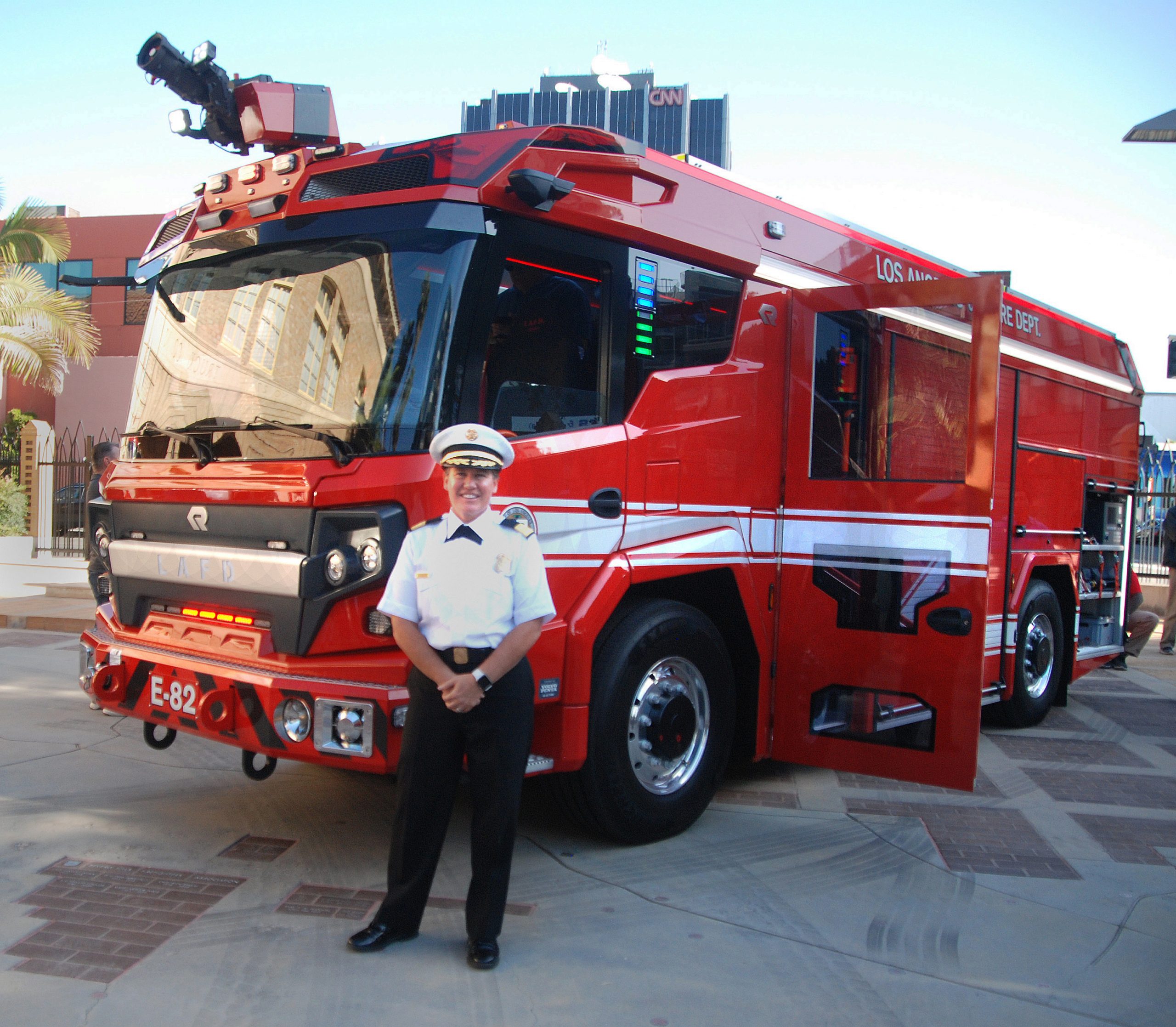
On Tuesday, the former Fire Chief of the Los Angeles Fire Department fought for her job to be reinstated through an appeal process that did not go in her favor. She will not get her job back, though she is expected to continue working for the department.
At the meeting, Crowley pushed back for the first time against the arguments Bass used to justify her termination. Crowley argued that she was facing retaliation for publicly highlighting a lack of resources at the department.
Going into the special meeting on Tuesday, she had to count on the support of at least 10 of the 15 councilmembers, or two-thirds. The appeal was almost certain to fail because she only counted on the support from Councilmembers Monica Rodriguez and Traci Park.
The main justification for her removal comes from Mayor Karen Bass, who claims Crowley allegedly made decisions that ultimately caused the Palisades fires to burn out of control.
”A thousand firefighters that could have been on duty on the morning the fires broke, were instead sent home,” said Bass in a previous press conference.
Crowley responded to her accusation.
“As for the 1,000 firefighters who were allegedly sent home prior to the fires, we did not have enough apparatus to put them on,” Crowley said. “Because of budget cuts and lack of investments in our fleet maintenance, over 100 of our fire engines, fire trucks and ambulances sat broken down in our maintenance yards unable to be used to help during the worst wildfire events in our history.”
At Tuesday’s meeting, Mayor Bass doubled-down on her claims, adding that Crowley allegedly refused to conduct an after-action report following the Palisades fire.
A claim that Crowley says is false.
“I did not refuse to conduct an after-action report,” said Crowley to the council. “And let me be clear, this is a false accusation.”
“During our discussions about an after-action report, I advised the fire commissioners about my opinion that was best in regard to how to use LAFD resources,” continued Crowley.
“I said that the LAFD is not capable, nor do we have the proper resources to adequately conduct an after-action report for the Palisades Fire.”
Bass was in Ghana when the Palisades fire broke out, leaving council President Marqueece Harris-Dawson as acting mayor. When Bass returned, she blamed Crowley for not warning her of the powerful Santa Ana winds that put Los Angeles at high-risk of fires before she left.
Back in January, Crowley took to the news media to talk about the lack of resources the fire department struggled with and that Crowley says ultimately caused the lack of response to the fires.
Councilmember Imelda Padilla, who represents the central San Fernando Valley, also publicly criticized Crowley for making the public announcement while the fires were still raging through Pacific Palisades.
The former fire chief also counted on the support of many LAFD firefighters who spoke in favor of her leadership skills and decisions.
Former Chief Deputy Ronnie Villanueva is currently serving as interim Fire Chief, as the search for someone to fill the position begins.
Arts & Entertainment
Meet Your Bartender: Sumner Mormeneo, the artist behind the bar
More than meets the eye, this West Hollywood bartender is a consummate artist going after the LA dream.
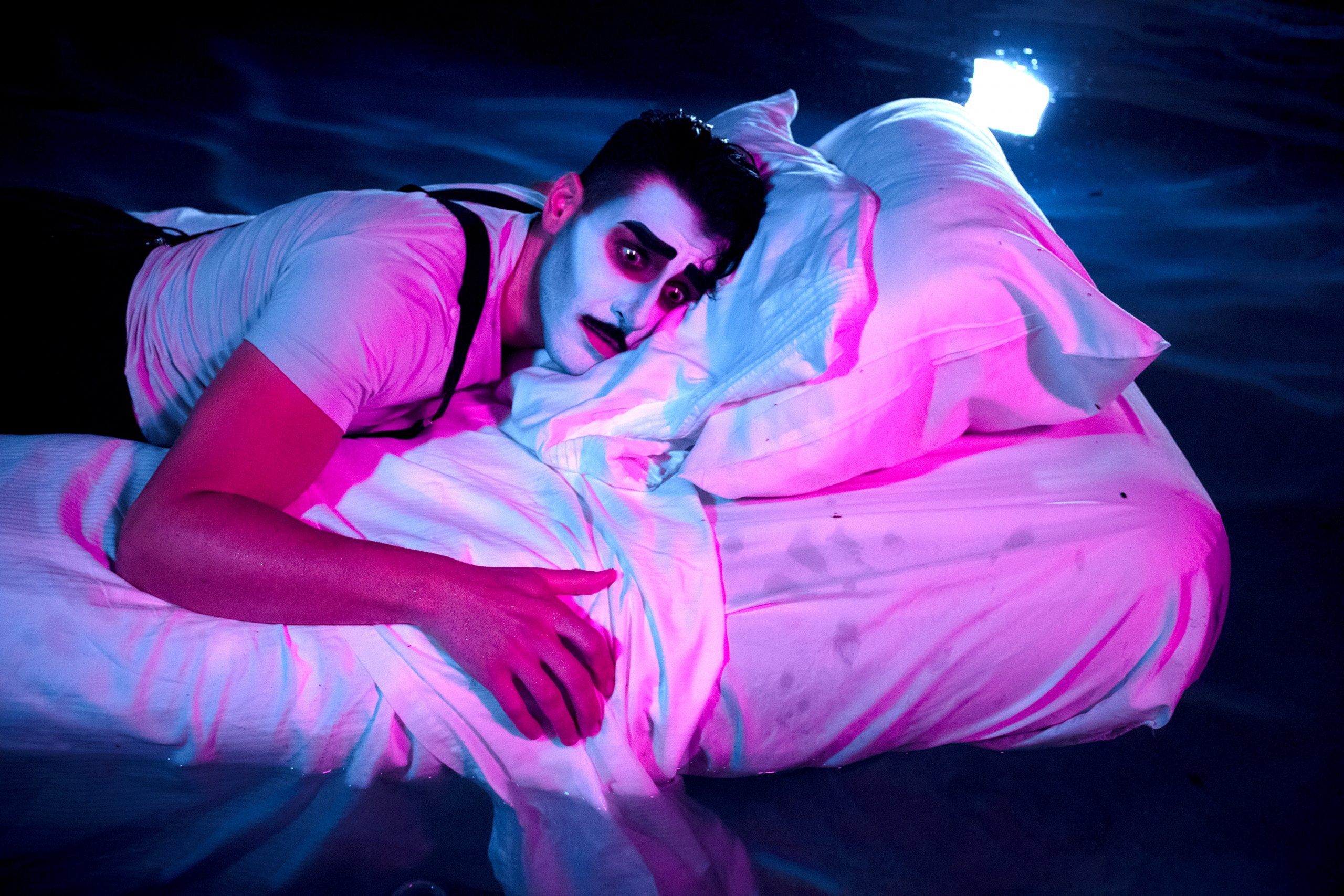
If you frequent Beaches in West Hollywood towards the later end of the week, you know and adore bartender Sumner Mormeneo. While he is an artist behind the bar, he is also a consummate artist with a list of credits who can create a variety of art with a paintbrush or typed words. Like many, he is making his way in the Los Angeles art and entertainment scene, after packing up his life and driving across the nation to follow his dreams.
We sat down to get to know your local bartender to discuss queer nightlife, his love of horror, life beyond the bar, his sober journey and his first group show now exhibiting at Circus of Books.
Hometown: I consider Orlando my hometown but was born and raised in South Florida.
Tell us about your journey to LA:
I have visited here a handful of times but specifically, it was a vacation with my dad when I was 12 when I knew I would end up here one day. It was a Santa Monica Beach sunset that did. Ever since I was a child, I was always creating, invested in art and the arts. Whether it was forcing my neighborhood friends to be in my camcorder horror movies or to star in my poolside rendition of Jaws: Live! featuring a green and purple inflatable Bruce the Shark.
If it wasn’t some sort of show, I was painting, drawing, makeup, music, anything and everything at some point. I reached a point, living in Orlando, where I felt like I did everything I wanted to do there. I love the city, the parks, and the community Orlando has, but I felt myself repeating the same work with nothing to push me out of my comfort zone. I was on a waitlist for the art Grad program at USC, ready to get my master’s and be an art professor. Los Angeles was always on the horizon for me because of what it has to offer in terms of entertainment and the arts. I can’t imagine moving here straight out of college and trying to figure myself out. I am very grateful that I allowed myself the experience to become a fully realized and recognized artist in another city before moving here.
How would you describe your art?
I’m a multimedia or interdisciplinary artist. The work itself I would describe as surreal. Haunting. Honest. And most importantly, Gay. My paintings and performance art take place in some sort of void.
What do you love most about being part of the queer nightlife scene in L.A?
Working specifically in West Hollywood, it’s hearing people’s stories. I’m fortunate to have a family and come from a place that’s not only accepting but loving. That’s not the same for everyone. Working in West Hollywood, you meet so many queer people from all over the world with so many different stories. Once in a while, you’re the first person a queer person on the run meets. Giving my advice on how to navigate this city or sometimes just a genuine smile and “Welcome to Los Angeles” is enough to make me cry on my drive home from work. And yes, I usually listen to “Pink Pony Club” on those drives.
What do you love most about living in L.A?
There was a tweet (is that what they’re still called?) that was going around on socials during the aftermath of the fires. It says “…Los Angeles is a proud blue-collar city with people from all walks of life. And then the creative black sheep from every family in America comes here to create art together. Do you realize how beautiful that is?” Every time I read it, I get emotional. I was the weird one my whole life, still am! But even more than that, being a creative is hard to explain to people. Most people don’t understand it. It’s beautiful, intimidating, and magical to live in a place filled with others like me.
What is your signature drink to pour?
It doesn’t have a name, but I make a version of a drink I had in Miami when I was 16. It was a blueberry mojito. I’ve recreated my version of it. I like to think that being half Cuban has something to do with being able to make a good mojito.
How do you balance your art with your nightlife?
It used to be very unbalanced! I still question if I’m doing it right. Not even the nightlife part, just balancing art with life. I find comfort in knowing many artists and creatives struggle with this. I sometimes get into a groove of a schedule and then it falls off. My ADHD brain likes to pick up new things and get over them quickly, too. Thankfully, I’ve learned to filter out which ones (projects) are worth keeping. In recent months, I’ve cleared a couple of days out of the week before working at night to make sure I always have at least 2 full days a week to invest in whatever I’m working on.
You celebrate the sober life. How does that work with you being a bartender?
I hear this question a lot and it’s the same response every time. It is so much easier for me than you think. I work the late hours of West Hollywood when people just want to get fucked up and party. A lot of them are fun and even more of them are messy (ha ha). Seeing the messy people is an instant reminder of what I do not want to be.
You also have a love for horror. What is it about horror that attracts you so much?
I wish I had a straight answer for this. There are full-length documentaries and studies on why people are attracted to it. I used to say that when I was young, I couldn’t handle it at all. The hard rated-R movies gave me nightmares for years and I’m still convinced Pennywise will tickle my feet in the shower. However, recently, I’ve realized I was actually always attracted to it. Maybe in a conquer my fears way, or maybe attracted to it in an “otherness” sort of way. I was the Wicked Witch of the West for Halloween when I was maybe 5 and Phantom of the Opera when I was 7. I insisted on renting Hocus Pocus every Blockbuster visit. The first VHS I bought with my allowance was Beetlejuice.
Oh, and the “Behind the Scenes” VHS that came with the Jaws 25th Anniversary Release was monumental in shaping my poolside production. My mother always loved horror and would show me the Classic Universal Monsters when I was little. I still have an affinity for Frankenstein. Eventually, her love for John Carpenter’s Halloween is what bled out onto me and I embraced it. I remember cowering in the theater when I was 12 during the Texas Chainsaw remake, but by 14, I was stupidly excited about going to Halloween Horror Nights.
So I’m guessing turning 13 has something to do with it? There’s a humor in some horror that allows you to laugh at life and then there’s other horror that allows you to look at life’s experiences profoundly. I think both are equally important.
How do the horror and queer worlds complement each other?
Nothing is more queer than a final girl. Under attack, stressed, trying to survive. Sounds pretty relevant to me! The queer coding of villains is something that’s come up a lot recently and that one probably has the deepest hook in me. It’s almost common knowledge now that the drag queen Divine inspired Ursula. Ursula is a drag queen. Scar is that one catty gay everyone knows and Jafar is the pretentious one. I love how the genre is being turned around from what was once considered trash to moving its way into the Oscars.
And of course, there’s that whole 14-acre expansion coming to the Magic Kingdom in Orlando celebrating the villains. The genre has so many sub-genres that can explore queerness and complement each other. I mentioned slashers and Disney villains, but even just to quickly apply it to something like a paranormal story- it could easily be translated into an “unknown” haunting relating to someone’s coming out story or someone’s identity being suppressed. Horror is the one genre that allows you to say whatever you, however you want.
What are you currently working on in the art/entertainment world?
My heart breaks a little when I tell people I don’t paint anymore or don’t plan on bringing my show The Infinite Conversation here. I would still love to paint some murals out here if given the opportunity. I think I hinted towards it earlier, but L.A. has more to offer than what I would have been able to do just on my own in Orlando. And that’s film and music. They are my first two loves and the mediums that always seemed so impossible. I realized on my U-Haul drive over here that writing scary movies was the one thing I’ve always really wanted to do, it just seemed out of reach or impractical living elsewhere. So that’s what I’m working on! I’m about to get started on my third draft of a queer paranormal feature that I’m in love with. I started writing and rehearsing with a band late last year, too. It didn’t work out with them, but I’ve been working on some stuff with another band more recently. We’ll be meeting up next week to see if we’re a good fit for each other. So, instead of sitting in a theater and watching me perform, you might get to dance in a mosh pit and watch me perform soon instead (haha). I’m showing a couple of pieces in my first group show here in L.A. at Circus of Books. The show is called Dark Hearts and was curated by Sküt. It’s up until March 17.
What do you want most out of your career in LA?
My dream is to one day focus solely on my creative work. I love bartending, but I didn’t move here to do it forever. To be pushed more, out of my comfort zone, to be able to create new things, tell new stories, experiment with and learn from new mediums, and eventually be able to make a living out it. That’s what I want out of L.A. That’s the Hollywood dream, right? To keep it simple, I just want to make scary movies and heavy metal (haha).
What is one thing in LA that you haven’t done yet that is on your list?
Go to a premiere for a movie I wrote? (ha ha) I think this bleeds into the last question and what I’m really here for. I get hard on myself sometimes, thinking I should be working harder and longer. But realistically, I know things take time and I’m still young and learning. Eventually, getting my movie made would be nice. I already know the next couple of stories I want to write. And maybe in the next year, I will play my first show as a frontman in a metal band. Both are possible! I know you asked for one, but I’ve been focused on two things as of late.
There have been many changes in queer nightlife over the last few years, and now we are under political attack. What do you think the future of queer nightlife looks like?
It’s weird. I had a close experience with the Pulse Shooting in Orlando. I’ve seen a community come together and stronger than ever, and I’ve seen it change into something I don’t recognize. I’ve noticed far less drinking with this newer generation, too. I appreciate the growing popularity of experiential events, pop-ups, and venues. I look at things like Meow Wolf or smaller-scale events created by promoters with creative and community-driven intent. There’s always going to be bars and clubs, but I’ve noticed a slow progressive lean into experiencing things with friends, others, or a community. I think that’s beautiful. And as a sober person, more fun. Whatever political agenda is taking place in Office, and however fucked it is, we as queer people have always been here and are always going to be here. Nothing can change that.
What is your message to the queer community?
Your voice is important. In this city and media moving forward, especially. I’m sure others can relate, but growing up queer in a straight world, I was taught to let things go, to turn a blind eye to things that didn’t sit right with me, and ultimately, as a millennial, was taught that there was only one type of gay man. Plot twist, there isn’t. Speak up, and share your story, because your story can help someone else’s perspective or even save a life.
Breaking News
Mayor Karen Bass fired Kristin Crowley, now she’s fighting back
Former LAFD Chief Kristin Crowley stated that she is appealing her termination
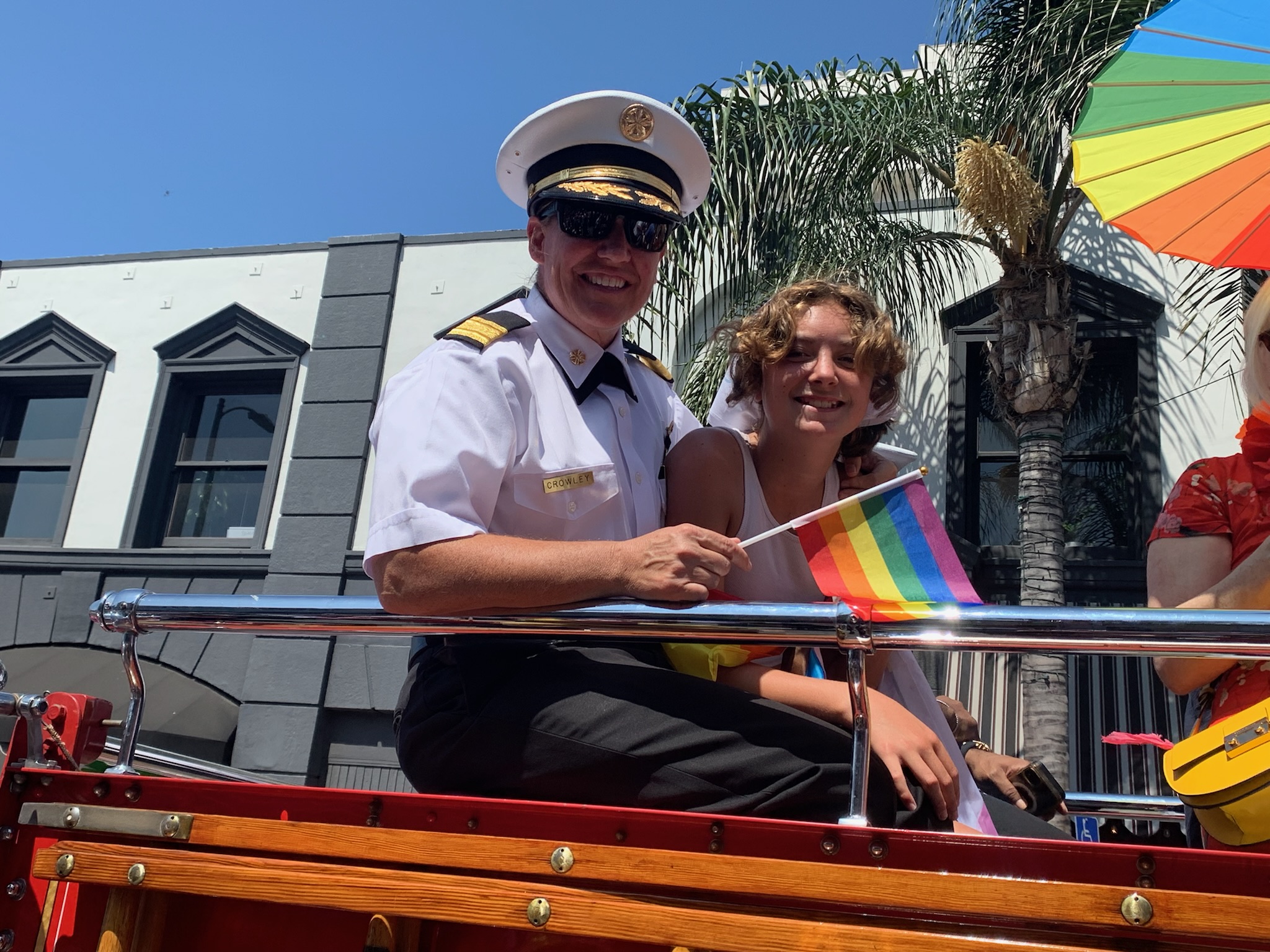
The Los Angeles City Council originally scheduled Kristin Crowley’s hearing on Friday at 5 P.M. in Van Nuys, but is now rescheduled for Tuesday, following backlash from community members and firefighter representatives who say the timing of the Friday hearing was meant to bury the issue.
On Thursday afternoon, City Council members received an email from former LAFD Chief Kristin Crowley stating that she is appealing her termination.
“Today I notified the City Council of my appeal as provided for in Los Angeles Charter, Article V, Section 5.08(e), due to Mayor Bass’ removal of me on February 21, 2025, from the position of Fire Chief of the Los Angeles City Fire Department,” said Crowley in a statement.
The UFLAC is the union that represents LAFD firefighters.
“It is outrageous that the City Council has scheduled, on just 24-hour notice, a ‘special meeting’ for Friday at 5:00 P.M. in the Valley to hear Chief Crowley’s appeal of her dismissal,” said The United Firefighters of Los Angeles City in a statement.
In order to successfully appeal her termination, Crowley would have to count on the support of 10 of the 15 council’s members.
At least four council members stood alongside Bass at a news conference on Friday, announcing Crowley’s ouster — Council President Marqueece Harris-Dawson and members Curren Price, Hugo Soto-Martinez and Adrin Nazarian.
Crowley’s decision to appeal has already been publicly opposed by at least two council members, Monica Rodriguez and Traci Park.
“This is not transparent, fair, or just. It’s yet another public blunder coming out of City Hall that makes the people of Los Angeles continue to question the motives and trustworthiness of our city’s leaders,” said the union, criticizing City Hall’s decision to handle the issue.
This is a developing story and we will continue to report as more details become available.
-
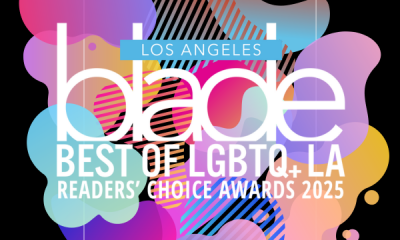
 Arts & Entertainment7 hours ago
Arts & Entertainment7 hours ago2025 Best of LGBTQ LA Readers’ Choice Award Nominations
-
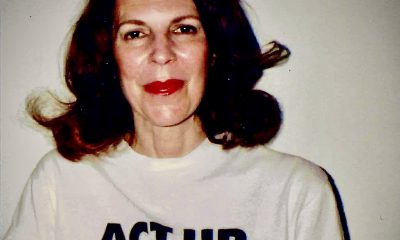
 Obituary4 days ago
Obituary4 days agoNanette Kazaoka, an unlikely AIDS activist, dies at 83
-
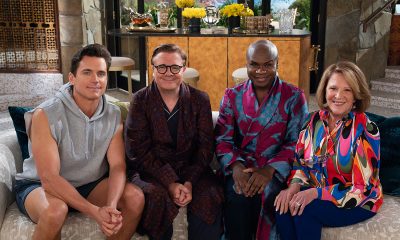
 Television5 days ago
Television5 days agoNo, ‘Mid-Century Modern’ is not a ‘Golden Girls’ remake
-

 Local10 hours ago
Local10 hours ago‘Think of those who have not been seen,’ Cynthia Erivo’s powerful message at GLAAD Awards
-

 Features9 hours ago
Features9 hours agoTristan Schukraft: Keeping Our Queer Spaces Thriving
-

 Opinions8 hours ago
Opinions8 hours agoGay bar in California bans MAGA gear — but no other political expression — from its premises
-
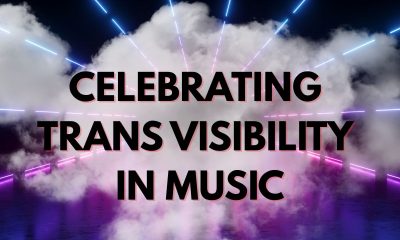
 Arts & Entertainment1 hour ago
Arts & Entertainment1 hour agoTrans Day of Visibility: Let us put you on 5 Latinx musicians you should be listening to right now
